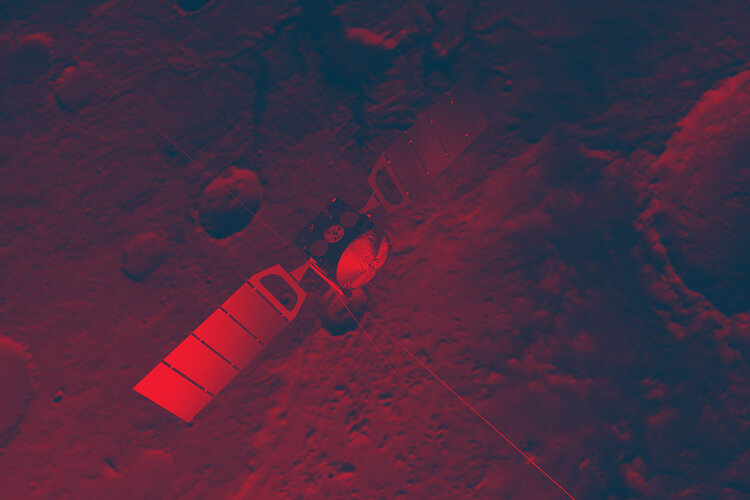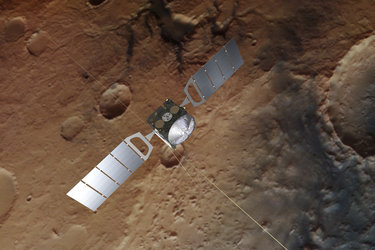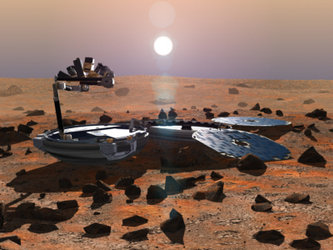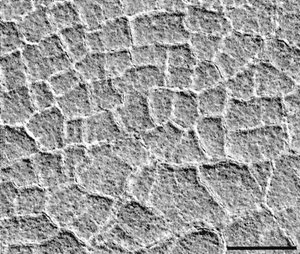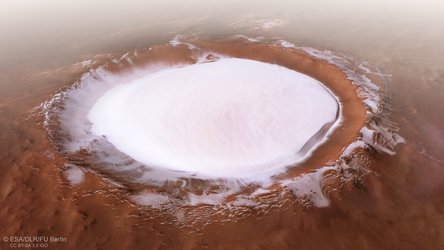Up where he belongs: An interview with Martin Pätzold
At 43 years old, Martin Pätzold is the youngest scientist in charge of an instrument on Mars Express. Working alongside some of the professors who first inspired him as a student, Martin is looking forward to his experiment measuring gravity on Mars with unprecedented accuracy.

Martin Pätzold
Professor of Geophysics at the Universitat Koln, Cologne, Germany
Principal Investigator, MaRS Radio Science Experiment, Mars Express
Born: 16 January 1960 in the Ruhr area of Germany
Martin studied Physics and Astronomy at the Universitat Bonn, then went on to complete his PhD in Astronomy in 1990.
As well as working on Mars Express, Martin also heads up the radio science experiments on ESA’s Rosetta and Venus Express missions, and has contributed his knowledge to countless others.
Martin lives near Cologne with his wife and three young children. In his very sparse free time, he enjoys diving.
All or nothing for Christmas this year!
ESA: How do you feel as Mars Express gets so close to its final destination?
Martin Pätzold
I am totally excited, as well as a little nervous. Quite frankly, we are getting all or nothing for Christmas this year! However, I have every confidence in the operations team, which is very skilled, which means that I can look forward to the mission’s success.
We think of Mars as the sister of Earth. It could well have harboured life in its early years.
ESA: What most fascinates you about Mars?
Martin Pätzold
We think of Mars as the sister of Earth. It could well have harboured life in its early years.
It is therefore very interesting to look closely at the similarities and differences between our two planets, from a geophysical point of view, analysing its atmosphere and its interior.
ESA: What is your greatest hope for this mission?
Martin Pätzold
My experiment is looking at the atmosphere of Mars, which it will be able to study with more sensitivity than ever before. We will be measuring the atmosphere from the surface to an altitude of 50 kilometres over the entire course of the mission, that’s four years, throughout all of Mars’s seasons, day and night.
We will see how the upper atmosphere interacts with the 'solar wind' (the stream of charged particles flowing out from the Sun). We hope to be able to discover whether this solar wind caused Mars to lose most of its atmosphere and, if so, how.
I watch how my students become ‘infected’ by the space bug!
ESA: What drives you in your job?
Martin Pätzold
One of the most satisfying aspects of my work is motivating the young people who have been selected to work on my projects. I bring in my geophysics students to work with me on space projects, and then I watch how they become ‘infected’ by the space bug!
ESA: How did you first become interested in space science?
Martin Pätzold
I watched the moon landings when I was nine years old. I remember that we had the first television set in our family, and I had to stay up very late with my father to watch it in the middle of the night. That was quite an experience, and I wanted to work in astronomy and spaceflight ever since.
There are many frustrations and demotivating experiences... so at times like these everyone needs somebody to tell them that it is worthwhile to continue.
ESA: What advice would you give somebody who wanted to work in space research?
Martin Pätzold
I would tell them to never give up! Most young people in this field find, while they are studying and pursuing their career, that there are many frustrations and demotivating experiences. At times such as these that everyone needs somebody to tell them that it is worthwhile to continue.


